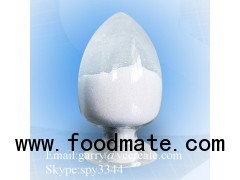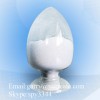Progesterone
Synonyms: 3, 20-pregnene-4; 4-pregnene-3, 20-dione; Beta-progesterone; Corlutin
CAS No.: 57-83-0
ECNECS No.: 200-350-6
MF: C21H30O2
MW: 314.47
Purity: 99%min
Density: 1.08g/cm3
Melting Point: 128-132o C
Boiling Point: 447.2° Cat760mmHg
Flash Point: 166.7° C
Appearance: White crystalline powder
Grade: Pharmaceutical Grade
Storage: Shading, confined preservation
Usage: Progesterone is an endogenous steroid hormone involved in the menstrual cycle, pregnancy, and embryogenesis of humans and other species. It belongs to a group of steroid hormones called the progestogens, and is the major progestogen in the body. Progesterone is also a crucial metabolic intermediate in the production other endogenous steroids, including the sex hormones and the corticosteroids, and plays an important role in brain function as a neurosteroid.
2. Application:
Progesterone is used for luteal support in Assisted Reproductive Technology (ART) cycles such as In-vitro Fertilization (IVF).
Progesterone is used to control persistent anovulatory bleeding. It is also used to prepare uterine lining in infertility therapy and to support early pregnancy. Patients with recurrent pregnancy loss due to inadequate progesterone production may receive progesterone.
Progesterone is also used in nonpregnant women with a delayed menstruation of one or more weeks, in order to allow the thickened endometrial lining to slough off. This process is termed a progesterone withdrawal bleed. The progesterone is taken orally for a short time (usually one week), after which the progesterone is discontinued and bleeding should occur.
Progesterone can be used to treat catamenial epilepsy by supplementation during certain periods of the mensutral cycle.
Progesterone is being investigated as potentially beneficial in treating multiple sclerosis, since the characteristic deterioration of nerve myelin insulation halts during pregnancy, when progesterone levels are raised; Deterioration commences again when the levels drop.
Progesterone also has a role in skin elasticity and bone strength, in respiration, in nerve tissue and in female sexuality, and the presence of progesterone receptors in certain muscle and fat tissue may hint at a role in sexually dimorphic proportions of those.
Antiprogestinsand selective progesterone receptor modulators (SPRM)s, such as mifepristone, can be used to prevent conception or induce medical abortions (note that methods of hormonal contraception do not contain progesterone but a progestin).
Progesterone is starting to be used in the treatment of the skin condition hidradenitis suppurativa.
Progesterone is sometimes employed as a component of hormone replacement therapy for trans women. 







